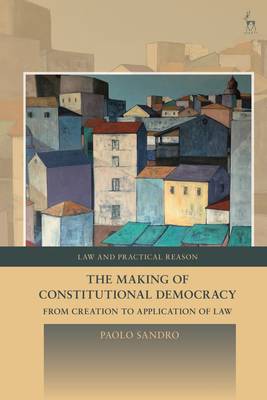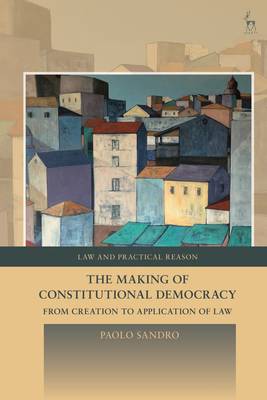
- Afhalen na 1 uur in een winkel met voorraad
- Gratis thuislevering in België vanaf € 30
- Ruim aanbod met 7 miljoen producten
- Afhalen na 1 uur in een winkel met voorraad
- Gratis thuislevering in België vanaf € 30
- Ruim aanbod met 7 miljoen producten
Zoeken
€ 101,95
+ 203 punten
Omschrijving
This open access book addresses a palpable, yet widely neglected, tension in legal discourse. In our everyday legal practices - whether taking place in a courtroom, classroom, law firm, or elsewhere - we routinely and unproblematically talk of the activities of creating and applying the law. However, when legal scholars have analysed this distinction in their theories (rather than simply assuming it), many have undermined it, if not dismissed it as untenable.
The book considers the relevance of distinguishing between law-creation and law-application and how this transcends the boundaries of jurisprudential enquiry. It argues that such a distinction is also a crucial component of political theory. For if there is no possibility of applying a legal rule that was created by a different institution at a previous moment in time, then our current constitutional-democratic frameworks are effectively empty vessels that conceal a power relationship between public authorities and citizens that is very different from the one on which constitutional democracy is grounded. After problematising the most relevant objections in the literature, the book presents a comprehensive defence of the distinction between creation and application of law within the structure of constitutional democracy. It does so through an integrated jurisprudential methodology, which combines insights from different disciplines (including history, anthropology, political science, philosophy of language, and philosophy of action) while also casting new light on long-standing issues in public law, such as the role of legal discretion in the law-making process and the scope of the separation of powers doctrine. The ebook editions of this book are available open access under a CC BY-NC-ND 4.0 licence on bloomsburycollections.com.Specificaties
Betrokkenen
- Auteur(s):
- Uitgeverij:
Inhoud
- Aantal bladzijden:
- 416
- Taal:
- Engels
- Reeks:
Eigenschappen
- Productcode (EAN):
- 9781509955213
- Verschijningsdatum:
- 27/07/2023
- Uitvoering:
- Paperback
- Formaat:
- Trade paperback (VS)
- Afmetingen:
- 156 mm x 234 mm
- Gewicht:
- 462 g

Alleen bij Standaard Boekhandel
+ 203 punten op je klantenkaart van Standaard Boekhandel
Beoordelingen
We publiceren alleen reviews die voldoen aan de voorwaarden voor reviews. Bekijk onze voorwaarden voor reviews.








